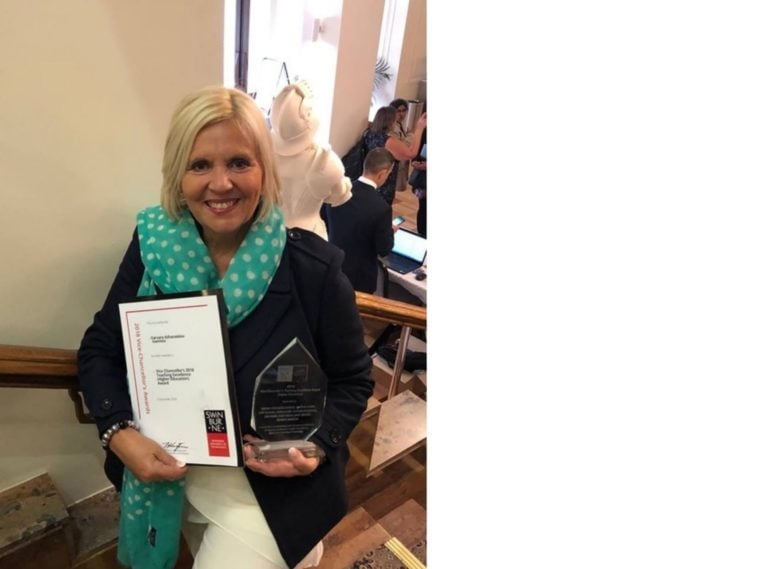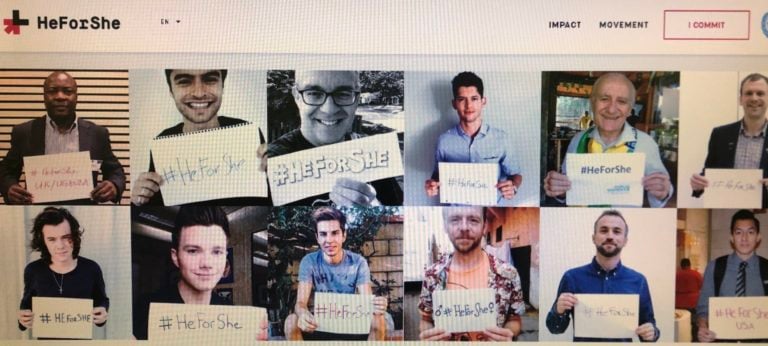To mark the celebration of International Women’s Day this year, The Food For Thought Network has invited three inspirational women, of diverse background, to share their stories of success.
We caught up with Varvara Ioannou, founder and chair of the network, to discuss the achievements but also the challenges women face today in Australia and how things have evolved since the network was founded 19 years ago.
The International Women’s Day 2020 campaign theme this year is drawn from a notion of ‘Collective Individualism’ and carries the hashtag #EachforEqual. Collectively, each one of us can help create a gender equal world. What does that mean practically?
It is a very complex question and it is not as easy as it sounds. It sounds ideal but we are not there yet. To be able to achieve that there are a lot of things that need to change. First of all we need to understand the barriers of why gender inequality is happening. Women at this point, undertake 72 per cent of all unpaid work in Australia. The bulk of which is caring work. It is not paid. But the monetary value of this unpaid caring work has been estimated to be $650.1 billion which is the equivalent of 51 per cent of the GDP. So you can understand the immensity of it. How can we be equal if the caring responsibilities at home fall solely on women?
Unless men share the load at home, it is very difficult for women to progress to higher positions of power.
Women can do it all but not all at once and not without help or without having adverse consequences to their health.
For the last 19 years you have been actively involved in the women’s movement in Australia. What do you think has been achieved in the last couple of decades?
Women in the West have achieved a lot. We only need to look at the changes in our legislation. We now have legislation that prevents discrimination in the work place, on the basis of gender, race, sexuality and so forth. Now both women and men get parental leave. There is effort to promote women in the workplace, and some organisations have set targets where they would like to see that by 2030, 30 per cent of women will hold senior roles. In terms of achievement, we see that the number of women in positions of power is increasing. And all the research shows that organisations are more profitable when they have women at that top level.

Have the circumstances of Greek Australian women improved in the past years?
I am not just an advocate for women. I am an advocate for diversity. I think we need diversity in organisations for them to progress.
If we look at the reports that were done by the Diversity Council Australia with the University of Sydney, “Cracking the Glass-Cultural Ceiling”, they show that culturally diverse women experience a double jeopardy in accessing leadership roles.
From a Greek point of view, when I started the network 19 years ago, it was very difficult to find Greek Australian women in positions of power whom I could engage as motivational speakers. In the first 10 years I engaged non-Greek women to raise awareness in areas of work, family, health and well-being and to discuss the barriers that exist for women to succeed. Though things are not where they should be yet, many more Greek Australian women are successful in the business world today.
What are the challenges that women still face today in Australia?
It is about 110 years since women got the right to vote in Australia and in the West we achieved a lot but we are nowhere near what I dreamt for my daughter and granddaughter. One where sexism and racism is no longer alive, one where women are not afraid to walk the streets by themselves at night, one where domestic violence is non-existent and one where child-rearing is equally shared by both parents.
Another thing that has happened is that feminism continues to be a “dirty” word, especially with men but also with the younger women. Through my experience with working with young graduates I have found that younger women disassociate themselves from the word “feminism”. They start engaging in women’s organisation only when in their late 20s they reach that “glass ceiling” and see their male counterparts move upwards faster. Culturally and linguistically diverse women have a more difficult road to walk. The patriarchal system unfortunately has eroded the feminist movement. To me feminism is nothing more than equality. It is about having a choice, about being treated as an equal at home and in the workplace.
How can men support women with the challenges they face today?
In the network we welcome men, because we cannot do it all alone as women. The power lies with white privileged men and therefore we need men to understand the barriers that exist because of the unconscious biases that are around us. In the past five years, most organisations ran training courses about unconscious biases and they have introduced the “He for She” movement at a global level. We also have the male champions of change addressing women’s issues and equality.

As mothers, women can play a crucial role in changing perceptions and behaviours as they raise their sons and their daughters. What advice would you give to women raising children?
They should treat their sons, like they treat their daughters. Women and men can play a very important role in raising their children to respect women, if they treat them like they would treat their father, their male friends. It is important to get them to share the load at home. I used to work with a few Greek young men. And they used to tell me that their mothers would wake up and make breakfast for them in the morning before they went to work. And they were adults. And they said that if their wives didn’t cook for them, their mother would do it. It is absolutely ridiculous. You see a positive change though in the young couples today. Men want to play a more active role in their children’s upbringing; they share the workload at home equally.
Also in all schools today, they talk about these issues. The other good thing is that publishers are releasing new books for children that portray diversity, so this is another welcome move.
How about the pressure teenage girls and young women feel to fit into the ideal image? You see the billions of selfies on social media, where a certain look is copied. You have young girls becoming anorexic, depressed and anxious.
It is very concerning that somehow the magazines and the media are still promoting that ideal female figure. We want to celebrate women in all their shapes, in all their differences, in all their good and bad points. What is very concerning is that women in their twenties are getting plastic surgery, Botox. Women are beautiful. There are a few women’s movements like Mamamia that are helping to change this in Australia.
We need to get educated. To educate parents. To practice what we preach and celebrate our favourite women, the women leaders and call out racism and sexism when we see it. It’s really important that we all play a role.
In Australia, women still die from domestic violence, and others die in the hands of random attackers. Women don’t feel safe. Mothers are worried about their daughters. People are asking for men to change.
We’ve had nine women killed in Australia in the last two months and they are killed by a family member. So how can we progress when this happens, and when women live in fear? Sexual harassment and domestic violence are huge issues. We can’t have equality if we don’t address these issues.
In the world today, 87,000 women are killed every year. 50,000 are killed by their male partners. In 111 countries, there are no repercussions for husbands who rape their wives. 35 per cent of women globally have experienced sexual or physical violence. Why does that happen? Because violence against women is tolerated. It is accepted.
Also women that are in happy relationships do not realise how hard it is for women in abusive relationship to leave their partner. It is a very difficult scenario. So this judgement that many women make about these women that are in these abusive situations is not right. It is not easy to leave a violent partner. There is a serious risk that you might get killed or your children might get killed, just like what happened in Brisbane last month.
Why did you become involved in the women’s movement? What inspired you?
When I came to Australia, I was 19, and I went straight to the bottom of the ladder. I didn’t speak any English and I hated it. I hated being treated like I was stupid because I didn’t speak the language. I grew up in a village in Epirus. My parents always helped everybody in the village. And because my parents had a shop they were always considered very important. I was privileged in Greece. And privilege is not something that you choose to have. Society assigns it to you. I worked very hard all my life to achieve what I have. And I try to use the knowledge I have gained to open doors, to remove barriers for women that do not have the equal opportunities.
Also read: Women closer to equality









